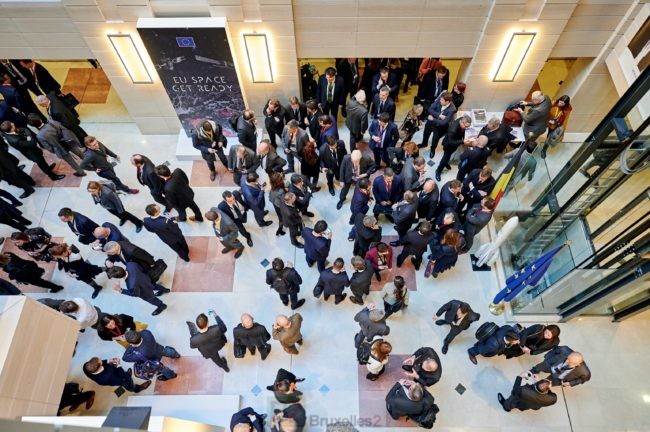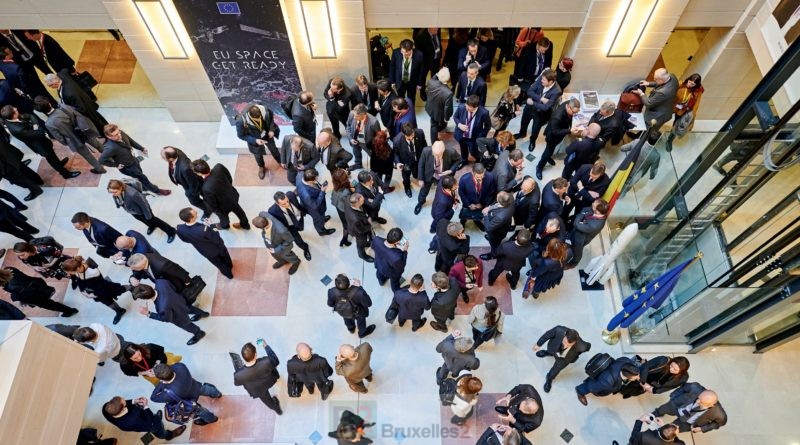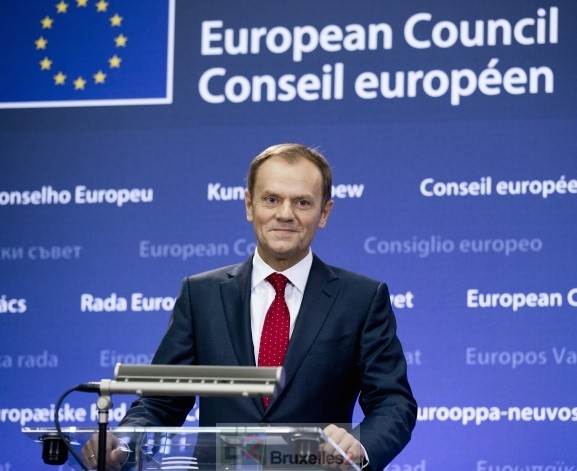European defense funds are changing the atmosphere among manufacturers. We talk to each other ! (v2)
(B2) The European Defense Fund has not yet been born and certain effects are already beginning to be felt. The mood changes. During informal interviews with certain manufacturers, we were able to realize this

The budget of the European Defense Fund is one of the key points of the discussion today and tomorrow between the Heads of State and Government on the future budgetary framework (MFF) for 2021-2027 (read: The patched European Defense Fund. Is it serious doctor?).
We're finally talking!
As a result of the future European Defense Fund (FEDEF), which is due to come into effect in a year's time — and its precursor, the European Defense Industrial Development Program (EDIDP) already in place — manufacturers have learned one thing: they must cooperate. It is not just a matter of will. It is an obligation. There is no other way if they want to benefit from European subsidies. And, for that, they must dialogue. What wasn't really quite in the karma defense industry before. We spoke to each other, but mistrust was often there. Thanks to the dialogue created, manufacturers recognize the expertise of their competitors and partners. They learn to trust each other.
The natural changes sides
National cooperation, which until recently was the natural logic, is losing popularity. It is indeed imperative to find partners beyond its borders. The European Defense Fund indeed makes it a condition to bring together companies from different countries (at least three). But all is not won for all that. Smaller companies have to pull together to win. The temptation is great, in fact, among the largest companies to use their subsidiaries, direct or indirect, already established in another country to meet the conditions.
European champions
There is therefore a great risk that large companies will continue to gain ground by forming partnerships among themselves, to the detriment of small and medium-sized enterprises (SMEs). They would train European champions, who would take the European defense market subsidized by the Fund 'hostage'... leaving no room for the little ones. A fear among many industrialists, but also on the side of European institutions.
Make the FEDEF everyone's business
At the European Commission, we do not want to use the term " european champion », often widely used in France, to stand out internationally. The involvement of SMEs in the Fund is a " very important question “, we gauge at the Berlaymont (headquarters of the Commission). " We must ensure that European defense becomes everyone's business ». The candidate projects will have to integrate SMEs ».
A challenge: the acquisition component
One thing is absolutely missing in the future FEDEF: the promise to purchase and the state contract. Because if the industry engages in the development of a project without a final contract – usually signed with the State –, its costs will certainly be compensated by the subsidies and there will be no immediate substantial financial loss. But the effort spent will prevent it from focusing on another technology, so it will have lost resources and profitability in the long term.
The market outlet of the European Commission
In the event that the States cannot guarantee contracts to industrialists developing their programs within the framework of the Fund, the European Commission should take care of it. It could thus supply the needs of its various agencies (maritime, fisheries, border protection, etc.). It still has to play the game. To see the contracts and tests passed by the Frontex agency, for example for an Israeli drone or the American Reaper, one can doubt it... (1)
Towards a communitarisation of European defense
With the creation of the Fund, through which the European Commission finances armament projects, we are witnessing a transfer of industrial expertise from the capitals to the Rond Point Schuman. It's slow, invisible. But this certainly opens the door to the communitarisation of a hitherto exclusively intergovernmental relationship. (2)
(Aurelie Pugnet)
In the ministries also the atmosphere changes
This development is reflected within the Ministries of Defense (or MOD in NATO or European jargon) themselves. They are beginning “to organize themselves, to think 'Europe'” tells B2 a keen observer of the situation. The objective is very concrete: to be able to perform well during calls for proposals from the European Commission to glean European funding.
It's a real change of culture in institutions traditionally organized around a national thought, even NATO. After some reluctance, France got in tune. And the General Directorate of Armaments (DGA) is now " full speed to use a favorite expression in the middle of the defense.
A few small countries do it rather well according to our information (eg Estonia, Romania, Bulgaria for example). But this transformation, this 'shift' did not take place everywhere. This is the case, for example, of the Dutch who stay with a very 'NATO' software and have a little trouble adapting.
(NGV)
- Lire: Frontex: which aerial drones to monitor maritime borders? et Frontex' curious purchases of drones
- Lire: Defence, an intergovernmental competence that is being communitized? (v2)
Paper updated at the beginning of March with the box on the ministries of defense

